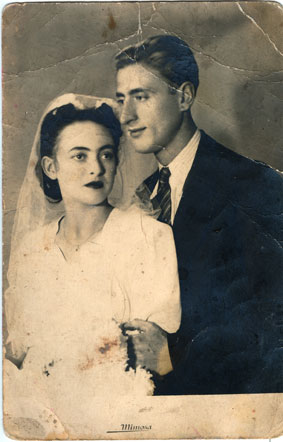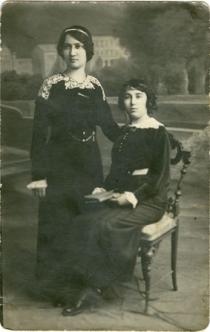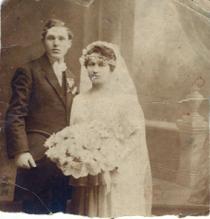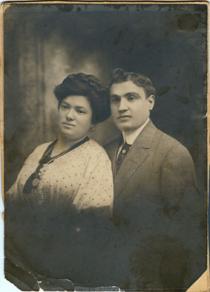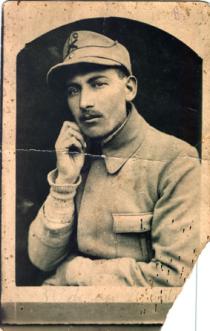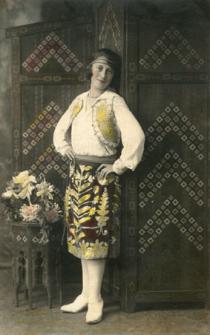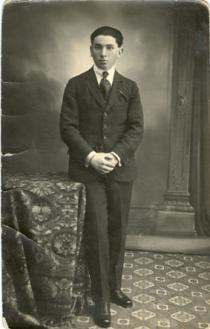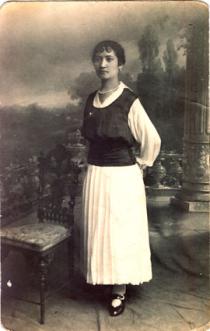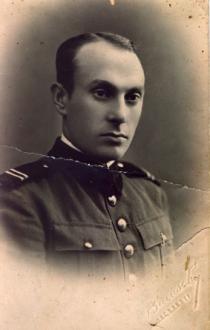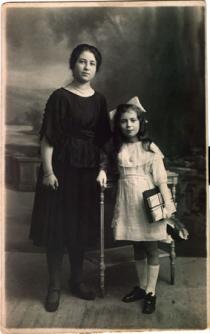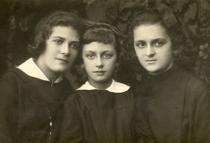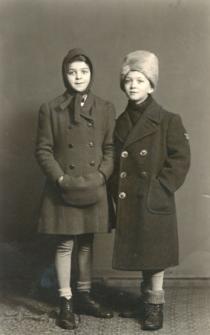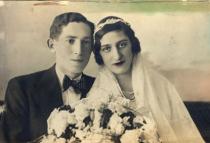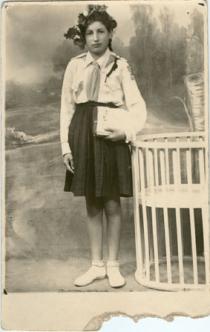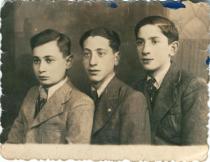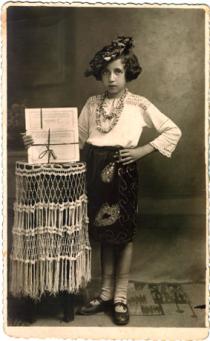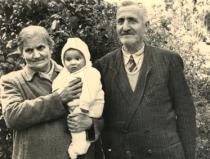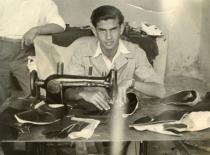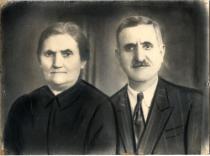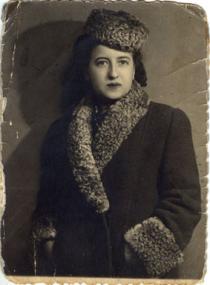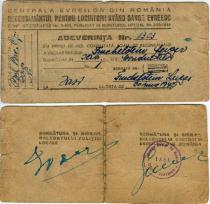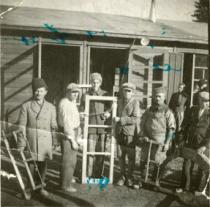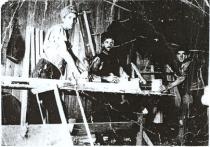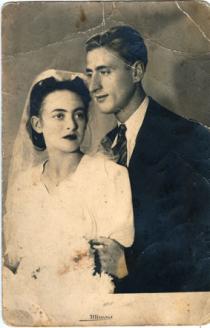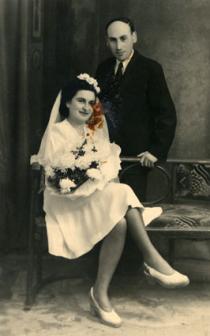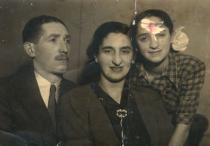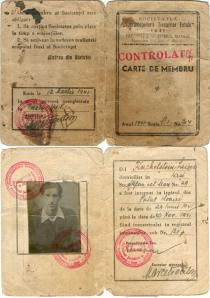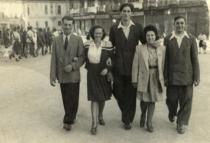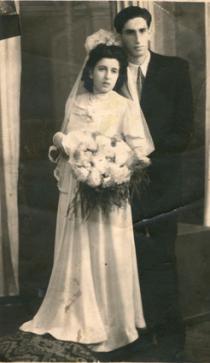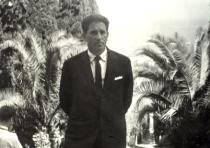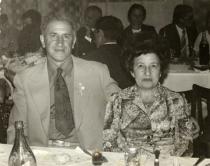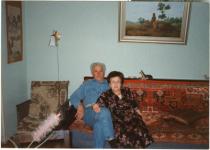This photograph was taken on the wedding of one of my brothers. Namely, Leon Finchelstein. The photograph was taken in 1944 when he married Liuba. It was a traditional Jewish wedding, without a lot of pomp as they do nowadays. They were ordinary people and had an ordinary wedding, with a rabbi, with family. Leon and Liuba emigrated to Israel in 1947 through the intermediary of Zionist organizations.
My mother was a housewife, she raised 9 children. I don't remember my mother ever going to bed or waking up at the same time as we did. We always went to bed and she stayed up longer, for she still had chores to do. In the morning she got up long before us in order to get us ready for school or work. We always found her where we left her, about the house, doing the chores. And let us not forget that washing machines or other possibilities of making life easier didn't exist in those days. She washed by hand, we didn't even have running water. Sometimes, when the material situation of our household was better, mother used to hire a woman to do the laundry. She collected the dirty laundry during a week or two and, if she managed to hire a woman to help her with the laundry, they washed all the laundry and stretched it out to dry in the courtyard. All the courtyards were full of washed laundry. This was during summer, it was harder during winter, when we strung the laundry to dry inside the house. Mother was a very hard-working woman. It was only when the girls were a bit older and could take over some of the household chores, that my father started taking my mother out for a walk, or to the park once in a while during summer. That's how it was in all households, not only in our home. She was always cooking, back then people ate cooked food at lunch and at dinnertime. Young people nowadays can't even imagine the kind of life that our mothers led. Father worked from dawn to dusk so that he could support the entire family.
Leon was born in 1921. People also called him Lica. He worked as a clerk at a shoe store which was called "La Doi Lei."
The financial situation of the family was rather difficult and insecure, for you could never tell what tomorrow would bring. Our parents always strived to ensure the livelihood of our numerous family. Father worked hard, the income that carpentry brought wasn't that good, and people also paid taxes in those days. It was hard to pay taxes, if you didn't pay them, the tax collectors used to come and levy a distraint upon certain goods in the house. And it was rather hard. Father was the only one who earned money in the family. That was until we grew up and managed to earn some money ourselves. And carpentry was season-bound. It wasn't a system based on the certainty that the month would pass and the wages would roll in. All money earned was spent mostly on food and less on clothing. We were so many children that had to be bought some clothing, the youngest used to wear the clothes of the elder brothers, but you had to buy clothes for the eldest as their existing clothes wouldn't fit them anymore.
